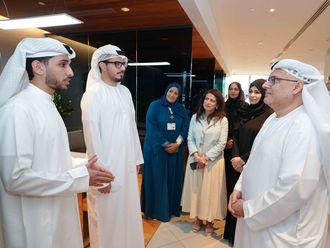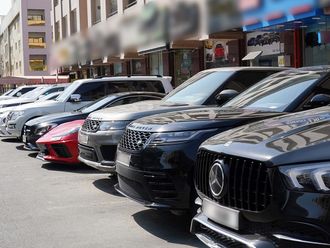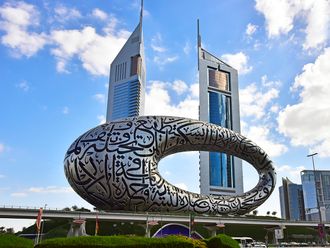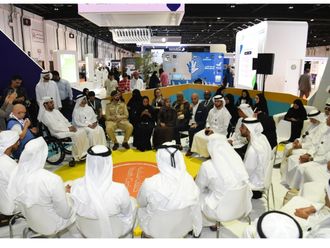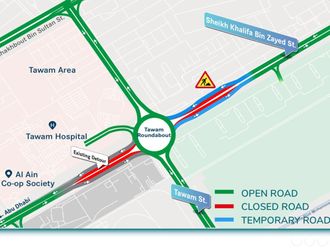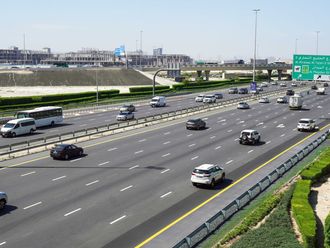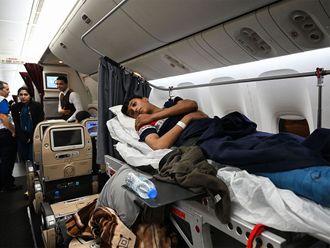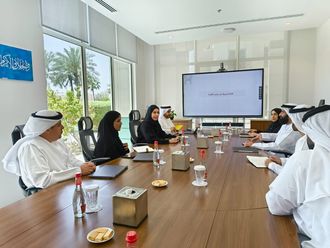In its relationship with its eastern neighbour Iran, the Taliban government in Kandahar operates in the gray zones of diplomacy, trying to derive concrete benefits while neither ignoring nor constantly harping upon the negative aspects of a bilateral relationship.
If Kandahar has played it wisely with Tehran, the Iranians too have come a long way from the 1998 massing of 120,000 troops at the Afghan-Iran border. At the time, the world simplistically concluded a war was in the making. Both countries then knew, as they do now, that Afghan-Iran relations have been historically complex, confrontational yet co-dependant and that the overlapping zones of influence are around religion, guns and gold.
With the emergence of the Afghan state in the late eighteenth century, an era of competitiveness and cooperation began which has remained unchanged. The only difference is that modern day Iran is socio-economically developed with a centralised and functioning state structure as opposed to today's Afghanistan. Iran continues to doggedly pursue its strategic-economic, political and security-objectives in Afghanistan.
Tehran has made many, and often contradictory, moves in the Afghan game. These have ranged from bitterly criticising the Taliban at international and regional forums, in coordination principally with Moscow, supplying sophisticated weapons to Taliban's key opponent Ahmad Shah Massoud, hosting and helping other anti-Taliban Afghan leaders and praising the Taliban government's cooperation on controlling poppy cultivation and narcotics export.
At the same time, Tehran has also demanded that Afghanistan's aproximately 10 to 12 per cent Shia population are given 33 per cent representation in any future political setup. It has provided humanitarian and reconstruction assistance to Afghanistan's southern belt which has been under Iranian influence, giving shelter to around two million Afghan refugees in strictly managed refugee camps.
And not hesitated to beam into Afghanistan from Mashad, Zahidan and Tehran what the Taliban leadership maintains is "propaganda against us wanting to change our people's thinking which amounts to intervention in our internal affairs."
The Taliban regime has repeatedly been blamed for victimising the Shias. The 1998 massacre of Hazaras in Mazar-i-Sharif was put down to Taliban anti-Shiaism although a year earlier the Taliban were butchered by a Uzbek commander and the pro-Iran Wahdat group after Taliban's accord with the Uzbek commander collapsed. The Taliban are quick to recall the presence of a Shia cleric Ustaad Mohammad Akbari, who controls, with Taliban consent, five districts in the Bamiyan province.
The paradox of the Iranian policy is manifestly evident in the central role that Iran plays in Afghanistan's expanding trade activity. Border markets operate between the two. Daily approximately 120-150 containers and 300-400 vehicles are cleared at Islam Qilla which are shipped from Bandar Abbas. Oil in huge drums is imported into Afghanistan. Besides, Japanese and Korean goods are imported for Afghanistan and find their way mostly into the Pakistan's main shopping centres, Iranian goods too have flooded Afghan markets.
Trade is good
Kabul, Kandahar, Herat and even areas close to Pakistan borders like Jalalabad see Iranian goods like plastic utensils, canned food, canned drinks and juices, shoes, soaps, detergents and food items being sold in the bazaars. Although Chaman, the Pakistani town, is closer to Kandahar than the closest Iranian town, it is mostly Iranian goods that are being sold in the markets. According to the trade-conscious Taliban leaders "the Iranians create no trouble for our traders and the Afghans find the Iranian goods better in price and in quality."
The Taliban seldom fail to draw a parallel between the weakness of the Pakistani government and traders in devising effective trade policies and practices to help Pakistani goods penetrate the Iranian market.
According to the Afghan foreign minister Muttawakil, Afghan-Iran relations "are much better and getting even better because of the shuttle diplomacy we are engaged in." A regular Afghan-Iranian dialogue to iron out transit trade related issues takes place. Plainly stating the obvious Muttawakil did not hesitate to say that "in trade, which is their main objective, we see a competition with Pakistan and the Iranians are succeeding with their far-sighted policies."
Although Pakistani goods like fans, threshers, plastic water storage tanks, some food items, wheat, flour too are in great demand, the procedure for exporting them is tedious and long-winded.
Limiting influence
While appreciating Iranian help, the Taliban leaders are also keen to limit Iranian influence. For example they refused the Iranian offer to set up an Imam Khomeini hospital in Herat. Instead they suggested that Iranians name it Islami Jamhooria hospital.
While Iran has helped Helmand and Kandahar with tractors and genetically altered seeds, its help in agriculture is viewed as an attempt by Iran to keep the Afghans away from poppy cultivation since it directly leads to an increase in drug smuggling into Iran. An Iranian request to set up farms in Baghdis on Afghan government-provided land was declined. Another Iranian project to drill a few dozen tubewells for agricultural purposes still awaits clearance. That, given Afghan needs, will probably come through.
The days of declared Iran-Afghan animosity have been replaced by more relatively muted concerns as they increase their bilateral engagement. The two are treading the fine line between open hostility and a tense movement towards normalising some dimensions of the relationship. Yet they remain mindful of the tensions that exist and have their own perceptions on why these tensions exist.
The Taliban believe that contradictory strands in Tehran's Afghan policy is a reflection of the division within the Iranian establishment into pro- and anti-Taliban groups. They understand the broader Iranian objective of expanding their influence in Afghanistan through a victorious Massoud, through the various other anti-Taliban Afghans they host in Iran, through the Afghan Shia community and through their products for which there is an increasing demand inside Afghanistan.
"Ultimately their competition for influence in our region is also with the U.S. and with Pakistan in capturing the Afghan market," were additional elements the Taliban believed influenced Tehran's policy. Some hold the Iranian media responsible as a Taliban minister complains that the "Iranian media does not want us to be friends, their media spreads news aimed at "creating differences among the Afghans" asserted a Taliban leader.
Through its astute Afghan policy, Tehran is managing to cover various leadership flanks thus managing cordial ties with any future Afghan government including the Taliban, cultivate public goodwill and dependancy on Iranian goods, continue to play the Shia card as well, remain steadfast and single-minded about its strategic objective of expanding trade ties with Afghanistan, keep the pressure on the Taliban on the political and military front to prevent them from stabilising their government. Significantly in pursuing these multiple objectives
Gray zone dominates Afghan-Iran relations
In its relationship with its eastern neighbour Iran, the Taliban government in Kandahar operates in the gray zones of diplomacy, trying to derive concrete benefits while neither ignoring nor constantly harping upon the negative aspects of a bilateral relationship.


